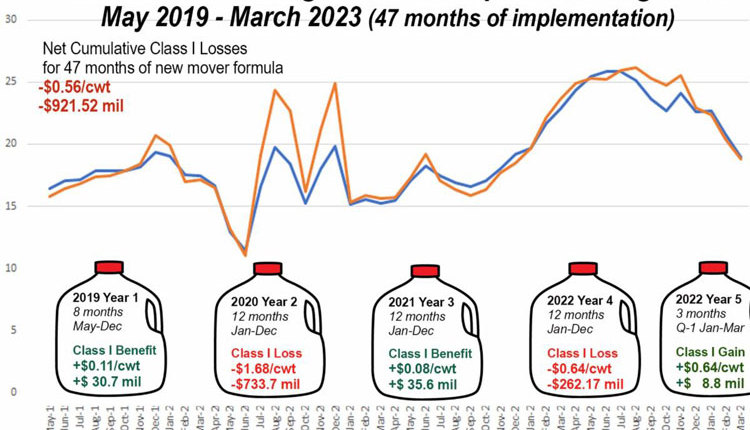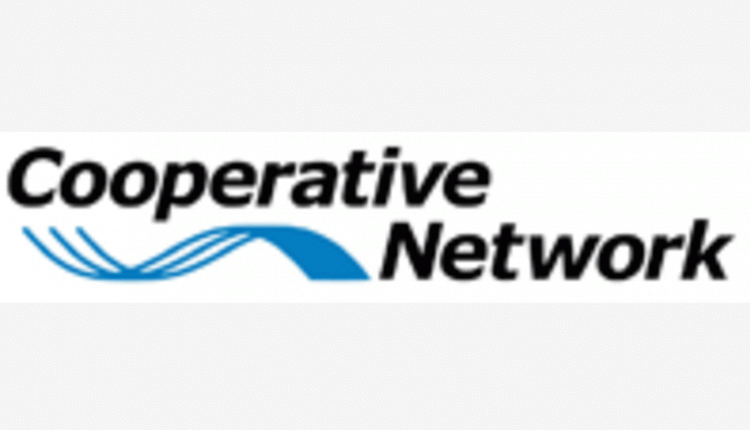The information below has been supplied by dairy marketers and other industry organizations. It has not been edited, verified or endorsed by Hoard's Dairyman.
American Dairy Coalition (ADC) welcomes the news this week that the National Milk Producers Federation (NMPF) board has endorsed an FMMO hearing plan that includes returning the Class I pricing method back to the ‘higher of.’
The change from ‘higher of’ to ‘average plus 74 cents’ was made in the 2018 Farm Bill, without a hearing. Over the 47 months since the change was implemented in May 2019, dairy farmers had net losses in Class I revenue estimated at $922 million (Fig. 1). This does not include lost revenue in mailbox prices from de-pooling or disruptions in risk management performance.
When the unintended consequences of the Class I change emerged less than one year after implementation, ADC got to work initiating conference calls with state dairy organizations and conducted webinar discussions about federal milk pricing.
“What we learned is that the Class I change was inequitable in how it shifted all of the risk to dairy farmers with a cap on the potential benefit of the change and no floor on the potential losses in revenue from the change. It also disrupted the risk management programs farmers use. That’s a double-whammy in a time of increased price volatility, supply chain disruptions and geopolitical uncertainty,” said Laurie Fischer, CEO of ADC.
“For over three years, we have been working toward returning the Class I pricing method back to the ‘higher of,’ and seeking the fastest way to do this as a first order of business before looking at other long-term solutions,” Fischer explained. “We are pleased to see NMPF has included going back to the 'higher of' in its FMMO hearing proposal list, but at the same time, we need to proceed with caution to ensure we don’t see this used as a ‘bargaining chip’ for something else that diminishes farm mailbox milk prices.”
The NMPF plan also includes a proposal to “update” make allowances in USDA milk price formulas.
“We understand processor costs have increased, but so have dairy farmers’ input costs,” Fischer explained. “As we look at the proposed changes that could be part of a future FMMO hearing, we hope to see a more comprehensive discussion of long-term solutions that include more transparency, such as expanding on additional dairy products which are currently not required via USDA processor price reporting.
ADC has also prioritized efforts to restore milk’s label integrity because there is not an available plant juice that provides the high amount of essential nutrients milk naturally comprises. Equally important is our nation’s most vulnerable children who have lost access to whole milk while they are at school. Whole milk should be available in federal feeding programs like school breakfast, lunches, and the Women Infants and Children (WIC) program.
“More dairy farmers today are paying close attention to federal milk pricing. ADC has been instrumental in engaging farmers in the discussion,” Fischer observed. “Farmers and processors need each other and share the desire to provide consumers with delicious, wholesome, nutritious milk and dairy products. We must not be short-sighted and a future hearing should allow comprehensive and transparent forward-looking solutions which encourage milk handlers to stay in the FMMO pool instead of leaving. We look forward to engaging farmers in the process and ensuring they have the option of an individual, confidential vote when final decisions are declared on the official FMMO voting ballot.”

About The American Dairy Coalition:





